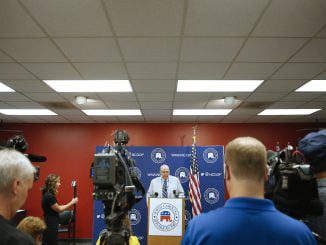
RALEIGH – The members of the General Assembly look to be finished with the 2020 legislative session.
One minute apart, the N.C. Senate and N.C. House of Representatives adjourned Thursday afternoon after passing legislation spending nearly $1 billion in funds allocated by the federal government, including direct payments to parents.
The relief package contains funding for North Carolina parents of $335 to cover unexpected childcare costs given the current state the reopening plans in both the economy and school districts.
State Sen. Joyce Krawiec (R-Forsyth) said of the payments, “Parents are facing an unexpected financial burden from school closures. Expenses like child care, supplemental learning materials, lost wages, and more are adding up. The Republican-controlled legislature voted to provide those parents with some relief in the form of a $335 ‘Extra Credit’ grant.”
The measure also increases North Carolina’s unemployment benefits for families and holds education funding levels “harmless.”
The “hold harmless” funding policy was cited by education leaders as the most important measure lawmakers could take to support North Carolina schools.
“This is a historic day of promises kept for North Carolinians, the culmination of a decade of state government reform by this Republican General Assembly that allows us to continue investing in recovery for all our citizens today,” House Speaker Tim Moore said Thursday.
Also in the legislation is $75 million directed towards Personal Protective Equipment (PPE), an additional $45 million for small business grant programs, and $10 million for internet connectivity for students, $30 million for the GREAT program to improve rural broadband, the elimination of education waitlists for kids with disabilities, an additional $5 million for county elections boards.
The bill now goes to Gov. Roy Cooper, who proposed his own budget recommendations less than a week before the General Assembly’s return. It is unclear if he will sign or veto the bill.



